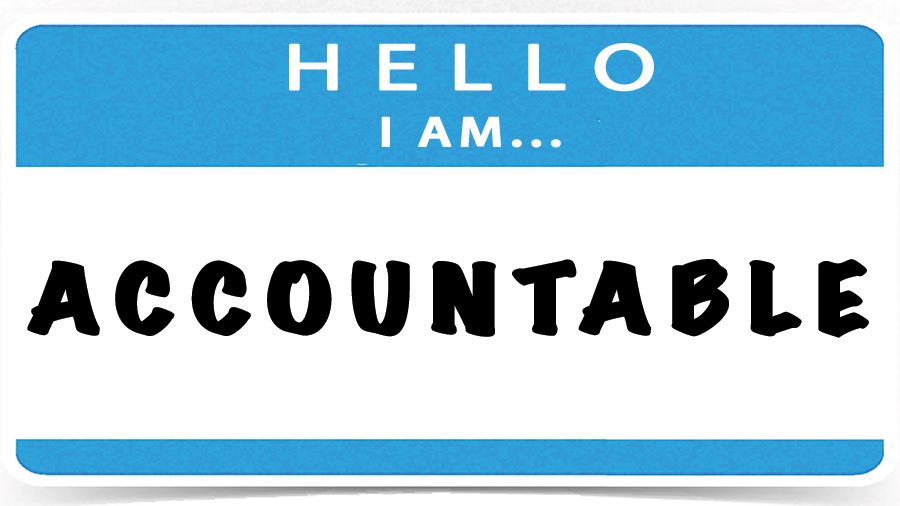“Why is no one ever held accountable here?” A vice president was fuming at me, and not for the first time. “Why do we always act like everything’s fine instead of holding people accountable?”
I’ve worked with a lot of companies, and the topic of accountability usually doesn’t come up unless someone thinks another person or group isn’t managing their end of things, and ought to take the blame. Sometimes it’s actually a veiled request for the leadership to swoop in and manage the situation to the satisfaction of the complaining party.
Complaints about accountability often serve as a euphemism for “They screwed up and they should suffer the consequences” for whatever has gone wrong. But complaints can also be shorthand for disparaging another group’s commitment or skills, or an attempt at deflecting the responsibility and pain of failure: “The problem couldn’t have been ours, we did everything we were supposed to do.”
Which Accountability Do You Mean, Anyway? And Whose?
Workplaces — and the work itself — are often so complex that responsibility for work product is shared, and not everyone is committed to or adept at sharing. So when people ask who will be held accountable for an outcome, or who “owns” an issue, they’re expressing concern that the roles and responsibilities aren’t clear enough and that a successful outcome isn’t likely.
Part of the challenge is that accountability itself isn’t a monolith. Before you can hold anyone to it, you’ve got to determine which kind of accountability you’re talking about. In its simplest form, if your thinking is accurate, your implementation works, and your word is good, no one raises the issue of accountability. But if accountability is a topic of discussion, that means one or more of those crucial aspects may be missing:
- Accountability for decision-making, strategy, or planning. Who defines the goals, requirements, and desired outcomes, and determines what’s supposed to happen?
- Accountability for implementation, execution, or operations may reside with a completely different workgroup that determines how the stuff gets done.
- Personal accountability. It’s very hard to require or foster accountability in others if you’re not demonstrating accountability yourself.
Where the Tidy Concept of Accountability Hits the Messy Wall of Reality
When the people who act as the deciders or planners don’t know the details of how the work gets done or the real constraints of the people who do it, they often set unrealistic goals based on a lack of understanding of the technical and operational specifics. The decision-makers can make assumptions about how things should go in a normative, conceptual way, but if they’re inaccurate, it seems extraordinarily unfair to blame differences on implementers who were not consulted in the process.
And who has to live with the outcome? If the strategists can just move on and create a new strategy without taking responsibility for what didn’t work or whether the implementers were fully resourced — then who’s truly accountable? Or, on the other hand, what if the implementers don’t agree with the strategy and don’t execute it faithfully? And what if they don’t understand it fully or aren’t actually skillful enough at all the necessary functions and competencies?
Either way, one group can be completely frustrated with the other group and become blameful. Or subgroups of implementers can become confused, resentful, and at odds if one group’s work is affected by a different subgroup of implementers that they can’t control and who bollix things up.
Accountability Always Starts with You
Once there is clarity about what it is that needs to be done, as well as alignment on who does what for whom, the last step is holding people accountable for their actions. Did everyone do their part accurately, well, and on time?
And if, in fact, they didn’t get where they were supposed to go? If the responsible party tries to make a case for why things awry, is it accountability to accept their words as explanatory, or as excuses and defensiveness? Is there a need for critical feedback, retraining, or, in fact, some kind of punishment, as perhaps the complaining VP was aching for?
Poor guy, he didn’t want to hear about all the necessary and mitigating factors — and he certainly didn’t want to have to retrace the mistakes and dysfunctions that were throwing his group off course. It’s very rare to hear about accountability problems from the other side, as in: “I have trouble holding people accountable,” or “I have trouble being held accountable.” But it’s necessary for leaders to be held — and hold themselves — fully accountable to create the possibility for accountability in the staff — including the responsibility, collaboration, and diligence that get the work done right.
Onward and upward,
LK

